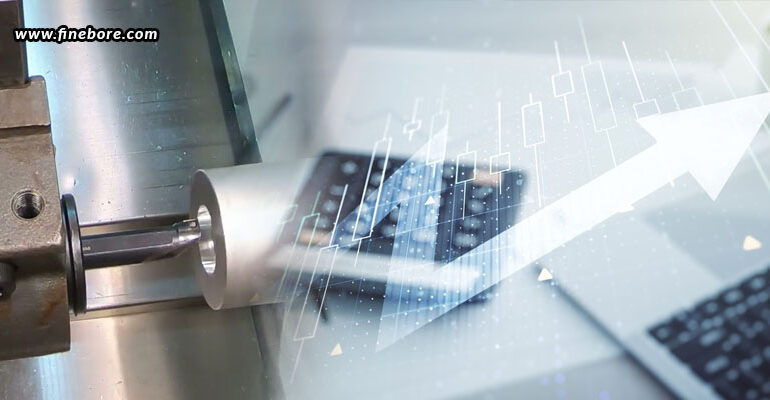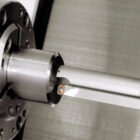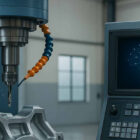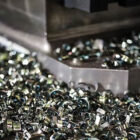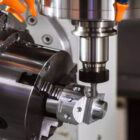In sectors where precision and excellence are unassailable, precision boring activities are essential. But getting that level of accuracy often comes with a hefty price tag. There are a variety of factors that contribute to increasing the cost. But, that doesn’t mean that the costs cannot be maintained. There are effective ways to manage the financial side of precision machining. Comprehending these cost concerns is crucial for optimizing profitability and preserving competitiveness in the current competitive market, regardless of experience level in the sector. Let’s understand the cost increasing factors, and the ways in which they can be managed, in the blog below.
Factors affecting cost in precision boring operations
Cost-influencing variables for precision boring operations may be divided into four major categories.
- Tooling expenses: Premium tools with cutting-edge finishes and features might fetch a higher price. The requirement for specific tools for various materials also raises the overall cost. However, purchasing high-quality tools is crucial to getting accurate findings and lowering the possibility of errors, which is why investing a little more in such quality tools becomes essential.
- Machine setup time: The amount of time required to prepare the equipment for precision boring operations has a direct financial impact. Long setup periods lead to hours of idle machinery, which lowers output and raises labour expenses.
- Labour costs: The efficient operation of precision boring tools requires skilled labour. The total cost of machining processes can be greatly increased by such high labour expenses, particularly if specialized knowledge or intensive training are needed.
- Downtime: Unplanned or planned, downtime is always expensive in machining processes. Equipment failures, tool replacements, and maintenance tasks can all cause downtime, which raises expenses and reduces production time.
While all the above issues result in increased expenses, precision boring operations can be made cost-effective, while upholding quality standards and machining firms’ competitiveness in the market, by addressing these variables and putting cost-saving strategies in place.
Tips for optimizing cost-efficiency
Strategic methods focused on increasing productivity and reducing costs are necessary to optimize cost-efficiency in precision boring operations. Here are some pointers for accomplishing this.
- Investing in high-quality tooling: Although high-quality precision boring tools may cost more up front, they frequently offer better results, a longer tool life, and increased productivity. Machining firms may minimize tool wear, decrease tool changeovers, and eventually lower total machining costs by investing in premium tools with cutting-edge features and coatings. This will not be an upfront cost reduction technique, but it will certainly save potential additional costs in the future.
- Minimizing machine setup time: I To cut down on idle machine hours and increase production, effective setup processes are essential. Machining businesses should spend money on quick-change tooling systems and modular fixtures, two types of fixture solutions that simplify setup procedures. Furthermore, utilizing cutting-edge CNC machining technology may greatly save setup times and boost overall productivity. Examples of these technologies include automated tool changes and presetting equipment.
- Optimizing labour utilization: To guarantee that machine operators can use precision boring machines and maximize machining procedures, thorough training is necessary. By guaranteeing flexibility in workforce deployment, cross-training personnel on various equipment and jobs can help minimize downtime and save labour costs.
- Implementing preventive maintenance programmes: Recurring inspections and maintenance of equipment and machinery are crucial for identifying any problems early on, averting expensive malfunctions, and minimizing unscheduled downtime. To keep machines operating at maximum efficiency and eliminate repairing costs, machining businesses should use preventative maintenance programmes that include periodic inspections, lubrication, and calibration.
Machining firms may maximize cost-efficiency in precision boring operations while upholding quality standards and competitiveness in the market by implementing these recommendations into their operations.
How precision boring tools manufacturers consider cost factors
Understanding the complexities of cost concerns in machining processes is essential for precision boring tools manufacturers to provide creative solutions that meet client expectations. Manufacturers can help machining businesses maximize cost-efficiency without compromising quality by offering premium tools that are recognized for their exceptional performance and durability. Leading boring tools suppliers in Bangalore, FineTech Toolings recognize the importance of cost reduction in machining processes, which is why by employing state-of-the-art materials and technology, they provide tools that are known for their remarkable durability and performance, which in turn helps clients reduce their total machining expenses. For machining firms looking to cut down on costs without sacrificing accuracy and efficiency, FineTech Toolings is a reliable partner, owing to its unwavering dedication to innovation, quality, and customer satisfaction.

